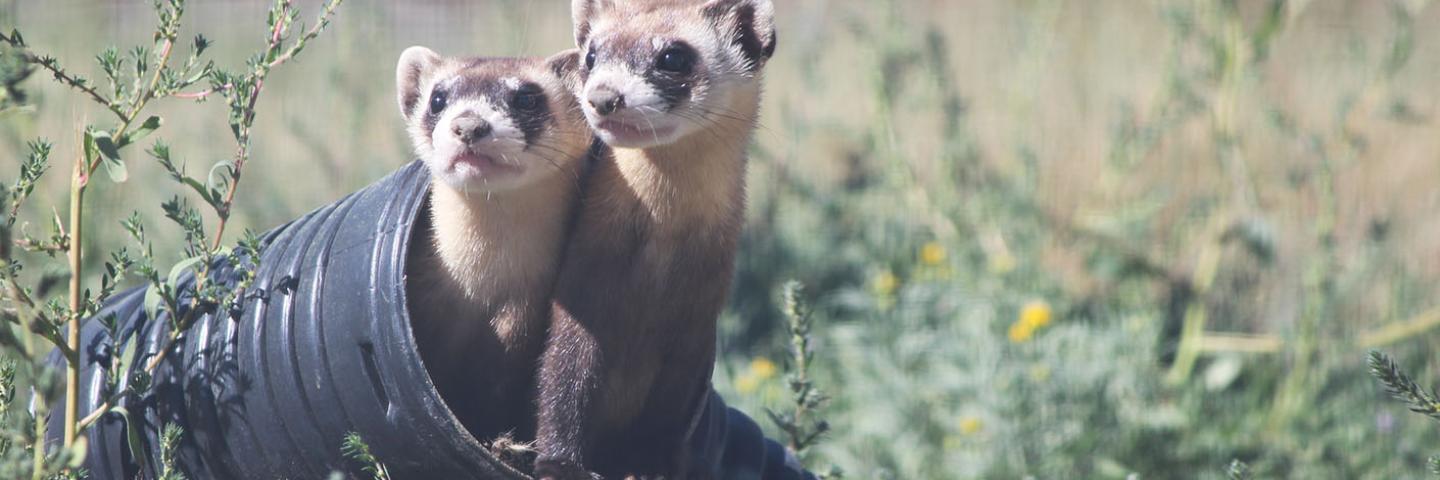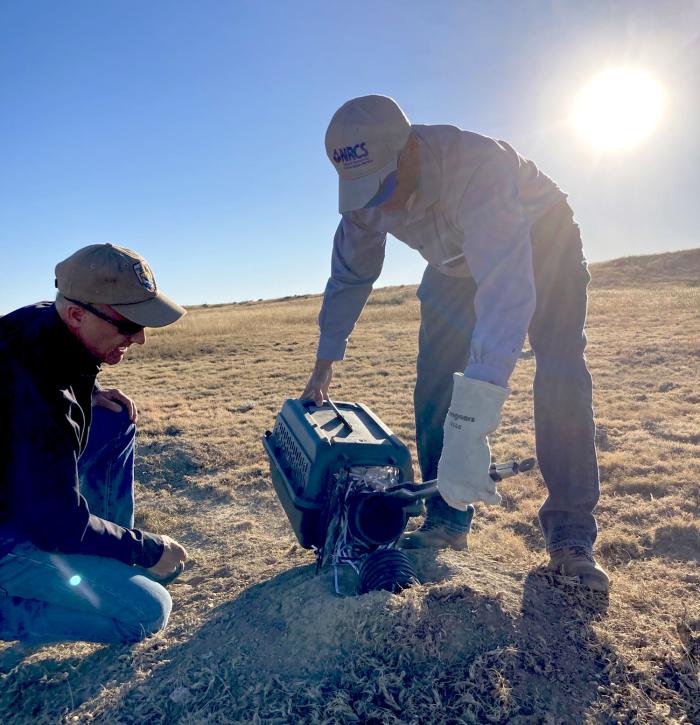USDA’s Natural Resources Conservation Service Continues to Help Recover the Endangered Black-footed Ferret in Colorado

NRCS supports the BFF recovery efforts by providing technical assistance and financial incentives to private landowners to install conservation measures in prairie habitats and livestock grazing areas that support wildlife species associated with prairie dog colonies.

The NRCS in Colorado continues its long-standing support of the black-footed ferret (BFF) recovery efforts. Most recently, NRCS alongside several partners released 50 BFFs in southeastern Colorado. Prowers County and Bent County host the two newest designated release sites in the State. The NRCS provided financial assistance for the effort thru its Environmental Quality Incentives Program (EQIP) to eligible landowners for this FY-22 effort.
“The CO NRCS black-footed ferret special effort is helping landowners keep their land as working lands while providing essential habitat for sensitive wildlife species,” said Patty Knupp, NRCS Wildlife Biologist in Pueblo, Colorado.
NRCS works on a voluntary basis and provides financial incentives to eligible private landowners and Tribes to install conservation measures and conduct monitoring in short grass prairie habitats grazed by livestock that support several wildlife species associated with prairie dog ecosystems. Additional BFF recovery plan partners include the Colorado Division of Wildlife (CPW), the US Fish and Wildlife Service (USFWS), Animal & Plant Health Inspection Service-Wildlife Services (APHIS-WS), Western Association of Fish and Wildlife Agencies, the U.S. Geological Survey (USGS) and Colorado Cattlemen’s Association (CCA).
“The black-footed ferret is the most endangered mammal in North America because it was twice thought to be extinct,” Knupp goes on to say. “Several years ago, USDA authorized BFF recovery efforts on a voluntary basis in12 states including Arizona, Colorado, Kansas, Montana, Nebraska, New Mexico, North Dakota, Oklahoma, South Dakota, Texas, Utah and Wyoming because prairie dogs and their colonies are the primary and preferred diet and habitat of the ferret. These states were once part of the BFF historic range, and still have high populations of prairie dogs.”
The NRCS started its support in 2014, providing financial and technical assistance to implement prescribed grazing plans as well as upland wildlife habitat management/monitoring. To date, NRCS has helped secure seven BFF release sites along the northern and southeastern portion of the state and invested over $1.1 million dollars through EQIP covering over 17,500 acres. More opportunities are slated for FY-23.
-end-

